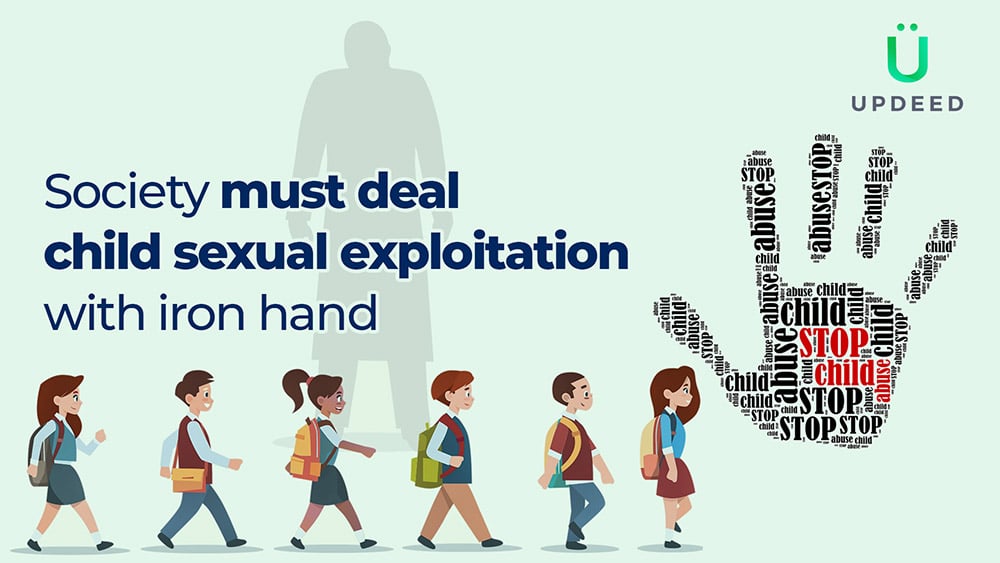Society must deal with child sexual exploitation with an iron hand
Do you have the guts to talk about private parts with your children? If your answer is a big âNOâ, start changing your attitude. As per WHO, 120 million girls and young women under the age of 20 have experienced forced sexual interaction in some way.
Most cases of child sexual abuse involve family members or persons the victims’ families or children know. Hence, you need to keep some pointers to note, as mentioned in the story.
In August this year, the United Nations declared âNovember 18â as the World Day for the Prevention of and Healing from Child Sexual Exploitation, Abuse, and Violence. How does it matter at all?
As per WHO, 120 million girls and young women under the age of 20 have experienced forced sexual interaction in some way. The numbers are not surprising, as incidents related to child sexual abuse make headlines on a daily basis.
âWe, as a society, have a tendency to neglect things until it happens to us.â
Recently, a United Nations special rapporteur revealed that the Philippines remains a “source and destination” for all types of child abuse, particularly sexual exploitation. The Philippine government, as per Mama Fatima Singhateh, the UN Special Rapporteur on the Sale and Sexual Exploitation of Children, has taken steps to address child sexual abuse and exploitation. However, more needs to be done.Â

It’s around us
We must have often seen that people often trust relief workers to assist and protect them in places hit by emergencies, natural disasters, and other conflicts.
The vast majority act honourably and professionally in doing so. However, some aid workers misuse their authority by sexually abusing and exploiting those who depend on them, particularly children. These actions are unacceptable and against the law.
However, one needs to be aware of what âsexual exploitationâ means. Any actual or attempted abuse of a position of vulnerability, differential authority, or trust for sexual motives committed by aid workers against the children and families they serve is referred to as sexual exploitation.
Child sexual abuse corrupts and perplexes a child’s morality, harms the victim’s mental health, diminishes self-esteem, is exploitative, leaves children vulnerable, and offers false knowledge about sex.
Help your child escape
Most cases of child sexual abuse involve family members or persons the victims’ families or children know. This means that the first line of defence against child sexual abuse is your family and your community. As a parent, you can take the following steps to prevent such scenarios:
- You should discuss with your children their personal and sexual safety and child sexual abuse.
- Take some simple safety measures, such as always accompanying your child to public restrooms and ensuring they can be seen and/or interrupted whenever they are alone with adults or children.
- When your child is asked to sleepovers, parties, camps, outings, or other events, find out the specifics of supervision and sleeping arrangements.
- Talk to your child about sleepovers, sports, and other activities. Ask your child about whatâs going on in the camp, for instance, by texting them. Or inquire as to how today’s football practice went.
- Talk about private parts with your child early on. Explain to your child that their private parts are private because no one else can see them. Explain to the children that although their parents can see them naked, other people should only see them dressed.
- Some kids find it awkward to say “noâ, especially to older peers or adults. If something feels off, let them know it’s okay to notify an adult and ask them to leave.
When it comes to body safety, parents don’t usually talk to their kids early enough. They believe children are too young to talk about such sensitive issues. It’s too frightful. However, there is never a late time to start a conversation, and it need not be tense.





